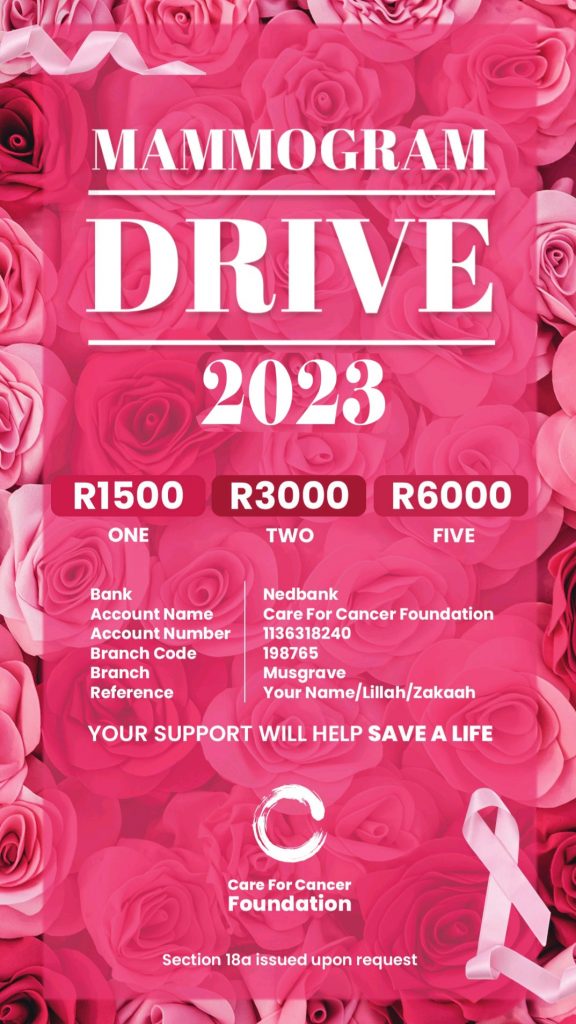Mammogram Drive 2023
365 Mammograms! This year we are fundraising to provide 365 free mammograms to our mothers and sisters in need. That's 1 mammogaram a day. Everyday!


Mammograms don’t prevent breast cancer, but they can save lives by finding breast cancer as early as possible.
Finding breast cancers early with mammography has also meant that many more women being treated for breast cancer are able to keep their breasts. When caught early, localized cancers can be removed without resorting to breast removal (mastectomy).
The main risk of mammograms is that they aren’t perfect. Normal breast tissue can hide a breast cancer so that it doesn't show up on the mammogram. This is called a false negative. And mammography can identify an abnormality that looks like a cancer, but turns out to be normal. This "false alarm" is called a false positive. Besides worrying about being diagnosed with breast cancer, a false positive means more tests and follow-up visits, which can be stressful.
To make up for these limitations, more than mammography is often needed. Women also need to practice breast self-examination, get regular breast examinations by an experienced health care professional, and, in some cases, also get another form of breast imaging, such as breast MRI or ultrasound.
Some women wonder about the risks of radiation exposure due to mammography. Modern-day mammography only involves a tiny amount of radiation — even less than a standard chest X-ray.
Important things to know about mammograms
- They can save your life. Finding breast cancer early reduces your risk of dying from the disease by 25-30% or more. Women should begin having mammograms yearly at age 40, or earlier if they're at high risk.
- Don't be afraid. Mammography is a fast procedure (about 20 minutes), and discomfort is minimal for most women. The procedure is safe: there's only a very tiny amount of radiation exposure from a mammogram. To relieve the anxiety of waiting for results, go to a center that will give you results before you leave.
- Get the best quality you can. If you have dense breasts or are under age 50, try to get a digital mammogram. A digital mammogram is recorded onto a computer so that doctors can enlarge certain sections to look at them more closely.

